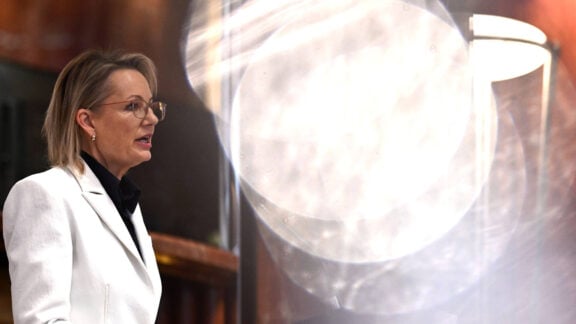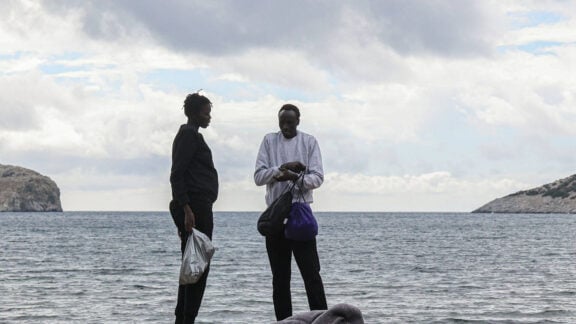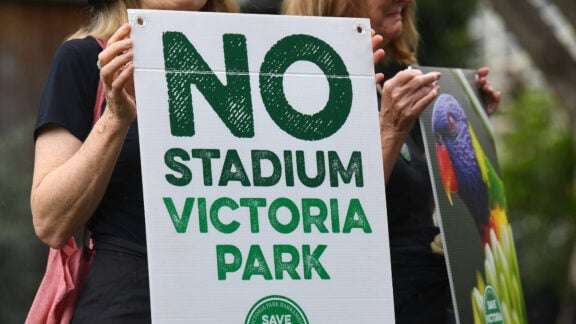With strong attendance and an atmosphere of festivity, the Apostolos Andreas Sunshine Cypriot Community held its anniversary dance at Melrose Reception in Tullamarine on Saturday night to celebrate 70 years since its founding.
Among the distinguished guests was Bishop Evmenios of Chora, who offered his blessing to the celebration. He described Saint Andrew as “a symbol of Cyprus’ freedom” and wished for “a spirit of cooperation and unity for the good of the community, the church, and the Greek diaspora.”
Also present was the High Commissioner of the Republic of Cyprus, Antonis Sammoutis.
The highlight of the evening
Stealing the show was one of Cyprus’ most renowned glass dancers: Aristotelis, better known as Telis Valaoritis.
The artist, originally from Paphos, captivated guests by dancing traditional Cypriot dances with dozens of glasses balanced on his head—a performance that left many in awe. He proudly notes that his skill earned him recognition in the Guinness World Records.

Valaoritis has been performing the glass dance for over 30 years and is the first person to have entered the Guinness Book for this unique art form. In 2023, he set another record by dancing with 319 glasses on his head.
The performance is demanding, requiring technique, talent, courage, and a bit of luck, as all eyes are on the dancer. Valaoritis is also known for balancing other objects such as chairs, grills (foukou), and even bicycles—always aiming to stand out and deliver a dazzling spectacle.

Ans in case there was any doubt as to fragility of the performance, the president clarified to the attendees.
“The glasses are real and unprotected,” Christodoulou said. “They are stacked in trays on top of each other. The artist also dances with chairs, grills, and bicycles to captivate his audience.”
A historic milestone for the Community
The President of the Community, Eleni Christodoulou, said during her speech:
“We are living through historic moments. With pride, we celebrate 70 years of this brilliant institution known as the Apostolos Andreas Greek Cypriot Community and our magnificent church dedicated to his grace.
“We honour the past and celebrate the future of our Community. I am proud to serve this Community and thank my invaluable colleagues, the Board, volunteers, and all who support our mission.”
Also attending were delegations from the Federation of Cypriot Communities of Australia and New Zealand, as well as SEKA, PASEKA, and Cypriot Youth NEPOMAN.
Entertainment included performances by the Manasis Dance School, the musical group Aetos, and Theano Milidi on violin.

The journey of the Cypriot Community in Victoria
The response from members and friends of the Community exceeded all expectations, said President Christodoulou.
The vision of the 1955 founders was carried forward by successors who went on to build the magnificent church of Apostolos Andreas, Cyprus’ patron saint, on St Andrew Street.
In addition, the Community established a Greek school, dance and folklore group, and a seniors’ program—all still active today.
The 2015 book “The Apostolos Andreas Cypriot Greek Community of Sunshine”, edited by Georgia Georgiou Giannis, describes the Community as one of Australia’s oldest.
“Settlement in the area is believed to have begun around 1850. The largest wave of Cypriot migration arrived in the mid-1900s. Most settled in Sunshine due to family ties and the rapidly expanding local industry, often with two or three families sharing one home,” Georgiou Giannis writes.
At that time, the only Greek Orthodox church in Melbourne was the Annunciation of the Theotokos in East Melbourne, requiring Sunday churchgoers to travel into the city by public transport.
President Christodoulou recounted:
“From discussions I’ve had with the original pioneers—most of whom have passed—and their descendants, I can say the idea was embraced by both Cypriots and mainland Greeks. The first church block was donated by the late Andreas Efthymiou Kaklamanos, but due to its unsuitability, it was auctioned off.
“With the funds raised and further donations, the current plot was bought in 1957. Initially, they built a military-style barrack, where Sunday services, weddings, baptisms, and funerals took place. With extensive volunteer work, the church was later constructed, and additional properties were acquired.”
Following the 1974 coup and Turkish invasion of Cyprus, Australia opened its doors to many Cypriot refugees, which led to a significant growth in the Community’s population.

The “Cypriot Village” and future vision
In line with its founding vision of establishing a church and school to preserve cultural roots, the Community purchased three acres of land in Forrest Street, Ardeer in 1995.
With great effort and sacrifice, the Cypriot Village was built—a high-spec community centre that meets a wide range of needs. It includes event halls, reception rooms, concert spaces, and facilities for Greek language and culture education.
“Our future plans include creating a library and folklore museum to showcase the cultural heritage brought from Cyprus by our members,” added Christodoulou. “Our goal is for the Centre to be a functional space that meets the Community’s social and recreational needs.”









